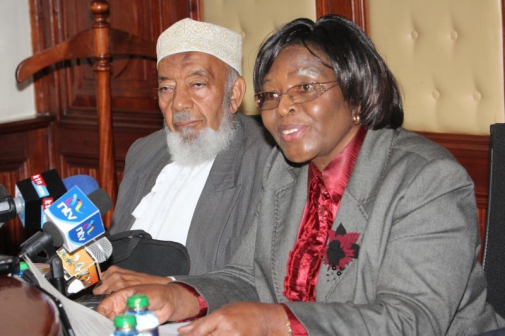×
The Standard e-Paper
Stay Informed, Even Offline

Fresh details emerging on Thursday’s electoral commission nominations paint a picture of vicious horse-trading amongst Jubilee and CORD agents during which best candidates were dropped, experts sidelined and professionals shunned.
Well-placed sources involved in the recruitment told The Standard on Saturday that the nominee for the chair position — Wafula Wanyonyi Chebukati, was the panel’s bait to the President to ensure top-scorer Tukero ole Kina won the race.